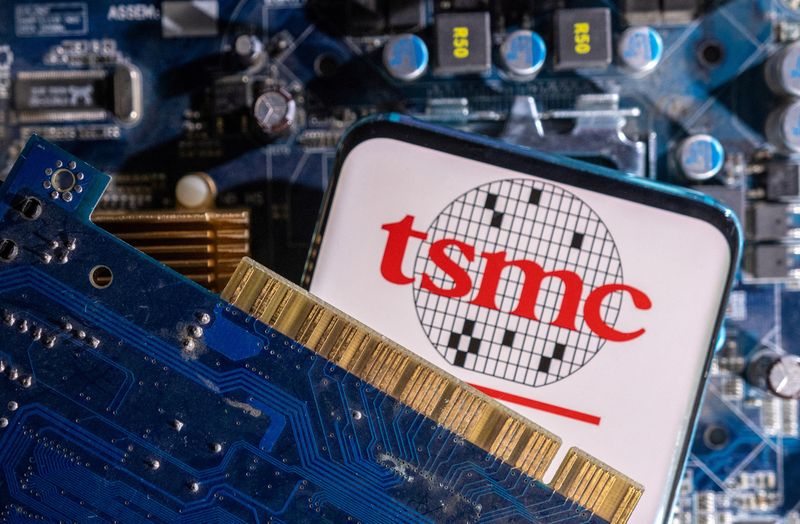This post was originally published on this site

TSMC, formally known as Taiwan Semiconductor Manufacturing Corp (TW:2330) (NYSE:TSM), was among the worst performers in the sector, losing over 6% in Taiwan trade.
TSMC offered a middling forecast for semiconductor industry growth in 2024, with weak demand for consumer electronics likely to offset any boosts from the AI industry.
This came even as the world’s largest contract chipmaker clocked stronger-than-expected first-quarter earnings, on the back of increased demand for the AI industry.
But TSMC’s outlook largely overshadowed the positive earnings, especially given that the firm is considered as a bellwether for the semiconductor industry.
Other Asian chipmaking majors retreated on Friday. South Korean memory chip makers SK Hynix Inc (KS:000660) and Samsung Electronics Co Ltd (KS:005930) slid 6.4% and 3.4%, respectively.
SK Hynix fell even as it announced a partnership with TSMC to develop next-generation memory chips.
In Japan, Tokyo Electron Ltd. (TYO:8035) and Advantest Corp. (TYO:6857) lost 7.7% and 5.5%, respectively, while Semiconductor Manufacturing International Corp (HK:0981), China’s biggest chipmaker, fell 2.2%.
Losses in chipmaking stocks had begun earlier this week after Dutch semiconductor technology maker ASML Holding NV (AS:ASML), which is also considered a bellwether for the chip industry, clocked weaker-than-expected first-quarter earnings.
This sparked questions over just how much demand the AI industry was actually providing for chipmakers, and whether it would be sufficient in offsetting weak demand from other sectors, specifically consumer electronics.
Hype over AI had spurred a massive melt-up in chipmaking stocks through the first quarter, making them vulnerable to a sharp pullback if earnings do not meet expectations.
NVIDIA Corporation (NASDAQ:NVDA) was a prime example of this. The stock was nursing a nearly 6% decline just days after ASML’s earnings, after tripling in value over the past year.


